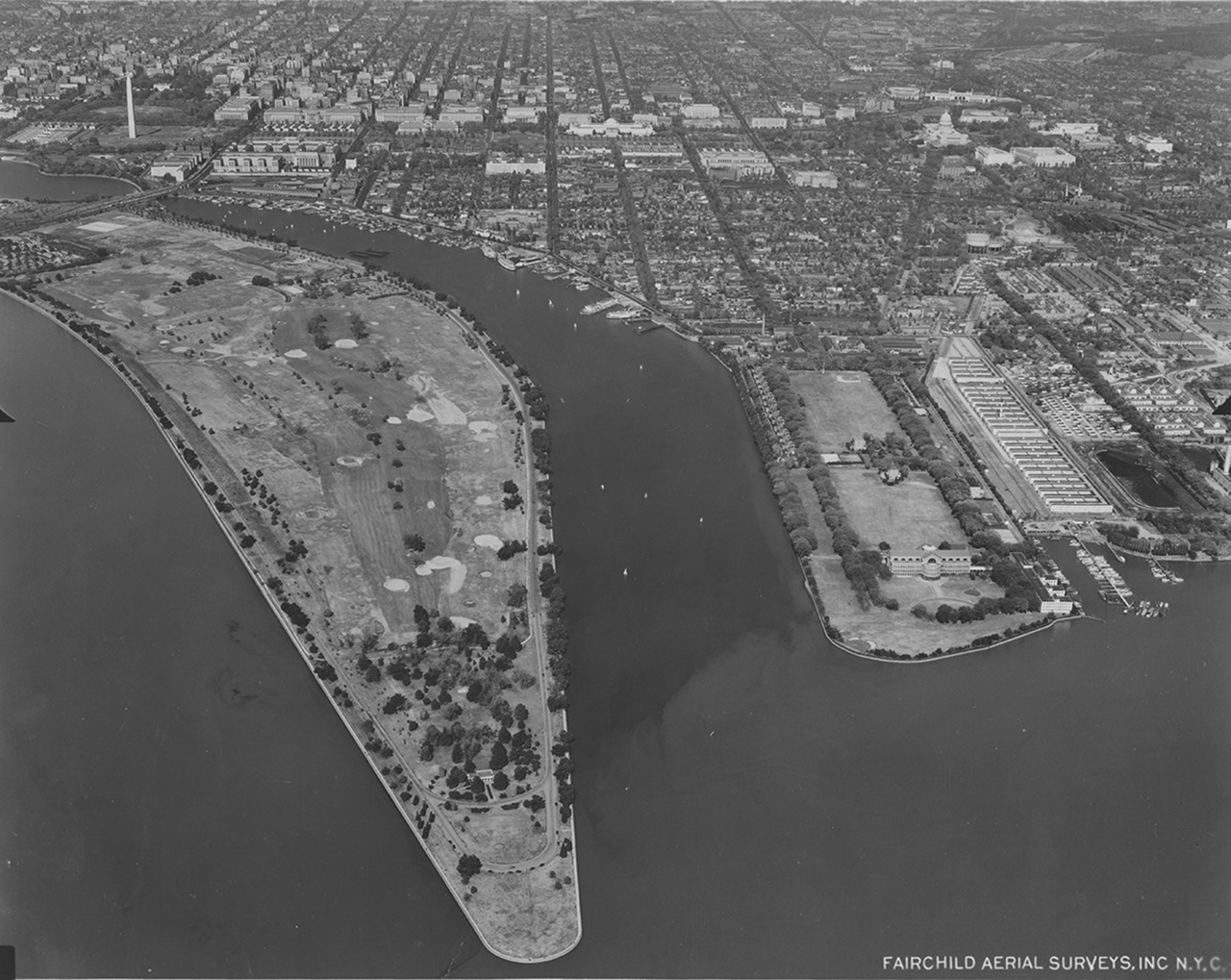In just more than two years since its inception, the National Links Trust has developed a wealth of information that might help municipal golf operators around the country restore courses that are often considered a community’s gateway to the game.
Now the National Links Trust wants to share that information, starting with a symposium Nov. 8-10 in Washington D.C. More than 100 attendees are expected to discuss five pillars: sustainability, community impact, growing the game, architecture and alternative programming. Interested parties can learn more at nationallinkstrust.com.
Since its founding early in 2019, the non-profit National Links Trust surprised itself in some ways by earning the contract to renovate the National Park Service’s three golf courses in D.C.: East Potomac, Rock Creek and Langston.
The mission: provide accessible, affordable and engaging municipal golf courses to positively impact local communities across the U.S. That mission started in D.C., and the NLT hopes to expand its reach at the symposium and beyond.
The three D.C. courses have plenty of pedigree and have served their community as an introduction to golf and as civic hubs for decades. But as with many municipal golf courses, conditioning and funding ebbed and flowed, leaving the layouts in various states of disrepair after decades of deferred maintenance. The NLT was founded by golf-architecture experts Mike McMartin and Will Smith to address the problems. With pro-bono plans by course architects Tom Doak, Gil Hanse and Beau Welling, work has begun.

Historical photo of Rock Creek Golf Course in Washington, D.C. (Courtesy of National Links Trust)
“Things are going very well,” NLT CEO Sinclair Eaddy Jr. told Golfweek. “We continue to be very busy at all three golf courses. We’ve made some improvements to things like the golf shops and cart paths, with an eye toward moving toward the longer-term improvements.”
In tackling the three D.C.-area courses, the NLT has learned much about navigating many of the issues that municipal golf faces. It’s not as simple as growing grass. There are political pitfalls, funding issues, usage and accessibility problems that any community is likely to face. Golf has seen an incredible uptick since the COVID-19 pandemic began and as players look for relatively safe experiences outdoors, but saving a golf course – or three – involves much more than rounds played. The level of planning is intense, and NLT wants to share what it has learned.
“We think there’s a successful playbook for renovating and rehabilitating municipal golf courses,” Eaddy said. “We’re doing it here in Washington D.C., and NLT is really focused on the three facilities in the nation’s capital as a model for how to do this around the country.”
Eaddy said NLT has received requests for information from project operators around the country on how to establish leadership teams, recruit talented renovators, fundraise and more.
“Our goal, and this is part of why we created the symposium, is to be a thought leader about thoughtful rehabilitation and renovation of municipal golf courses,” Eaddy said. “That’s how we are able to contribute to other projects around the country right now. While we focus on Washington D.C., we have resources and partners in the industry who helped NLT in its bid to renovate the D.C. golf courses. …
“We think there are some potholes out there for people who are thinking about rehabilitating or renovating municipal golf courses. We’ve gone through that process, and we think we can be helpful to other individuals and organizations that are even considering these types of projects and let them know what the pitfalls are. The hardest process is not just the bricks and mortar or the grass and sand of golf courses. Part of it is project planning and coming up with a roadmap that makes sense for the golf course, the patrons and also the local officials. For most people and most groups, that is the hurdle.”
The NLT has recruited a considerable group to participate at the symposium. Guests include PGA of America CEO Seth Waugh, USGA senior management director of public services Rand Jerris, PGA of America honorary president Suzy Whaley and more than a dozen other guests with expertise in everything from land finance to marketing.
On the golf architecture side, Doak, Welling and Jay Blasi – also a course architect and a Golfweek contributing writer – will present on the importance of good design.
Expertise in such a wide range of topics has worked for NLT, Eaddy said, and all these featured guests are willing to share what they have learned to promote community-based, affordable public-access golf.
“We want to be thought partners, Eaddy said, “and we want to help in any way we can.”

